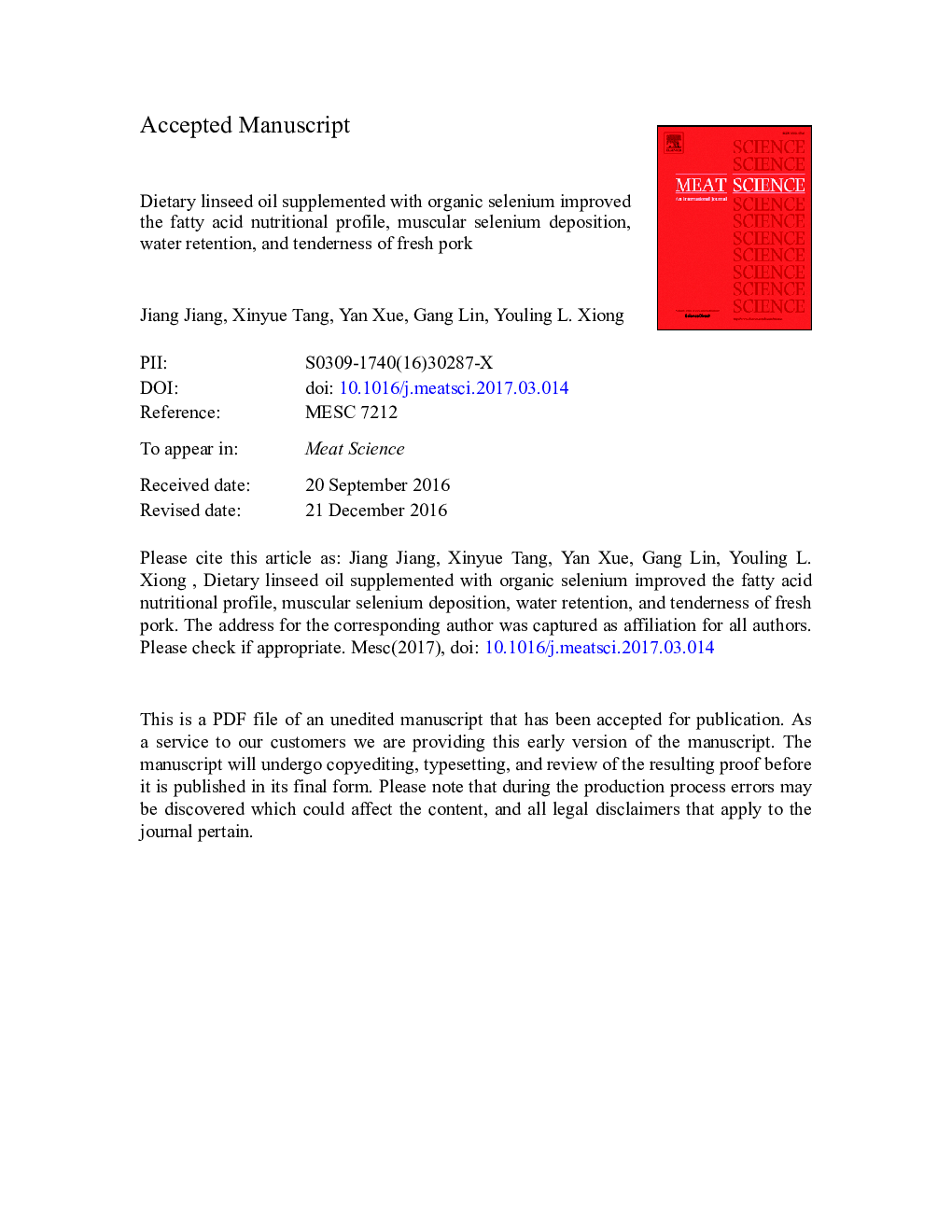| Article ID | Journal | Published Year | Pages | File Type |
|---|---|---|---|---|
| 5543349 | Meat Science | 2017 | 34 Pages |
Abstract
Cross-bred pigs were fed a control diet (with 0.3 ppm sodium selenite and 1.5% soybean oil) or organic selenium diets (0.3 ppm Se-Yeast with 1.5% soybean or linseed oil) to investigate nutrient supplement effects on meat quality and oxidative stability. The organic selenium diets increased muscular selenium content up to 54%, and linseed oil increased n-3 fatty acids two-fold while lowering the n-6/n-3 fatty acid ratio from 13.9 to 5.9 over the selenite control diet (P < 0.05). Organic selenium yeast treatments with linseed oil reduced pork drip loss by 58-74% when compared with diets with soybean oil. Lightness of fresh pork was slightly less for organic selenium groups than inorganic (P < 0.05), but redness was mostly similar. Lipid oxidation (TBARS) and protein oxidation (sulfhydryl) during meat storage (4 °C up to 6 days) showed no appreciable difference (P > 0.05) between diets, in agreement with the lack of notable difference in endogenous antioxidant enzyme activity between these meat groups.
Related Topics
Life Sciences
Agricultural and Biological Sciences
Food Science
Authors
Jiang Jiang, Xinyue Tang, Yan Xue, Gang Lin, Youling L. Xiong,
